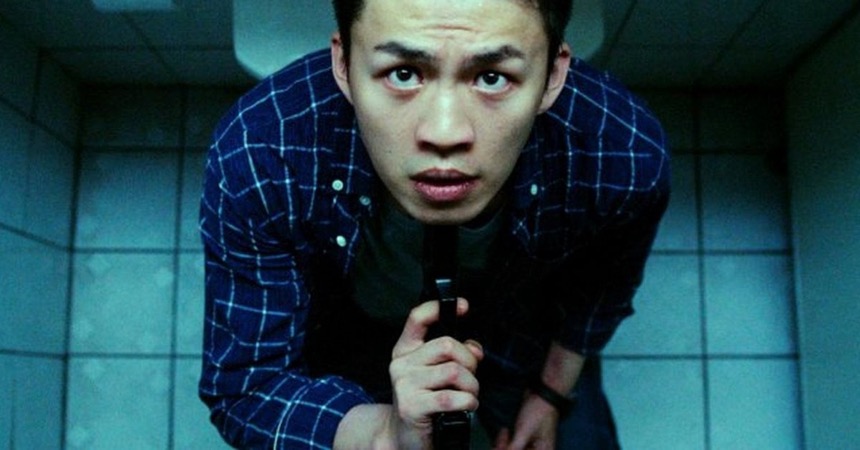Busan 2018 Review: CITIES OF LAST THINGS, Noirish Tryptich Explores One Man's Broken Soul
Ho Wi Ding directs Jack Kao, Lee Hong Chi, Hsieh Chang Ying, Louise Grinberg and Ding Ning

Ho Wi Ding’s noir-tinged triptych details three nights in the life of troubled Taiwan police detective Zhang Dong Ling, as his turbulent personal life repeatedly triggers eruptions of murderous violence. Winner of the Platform Prize at this year’s Toronto International Film Festival, Cities of Last Things is an imperfect but consistently intriguing new work from the director of Beautiful Accident, Pinoy Sunday and Respire.
Opening in a near-future setting, each of the film’s subsequent segments jumps further back in time, offering more explanation as to Zhang’s personality and behaviour. He is also portrayed by a different actor in each chapter, respectively Jack Kao, Lee Hong Chi and Hsieh Chang Ying, each of whom puts a new spin on the character while retaining his tortured core. The moody setting and strong performances go a long way to papering over the occasional lapses in logic and narrative missteps that emerge in this emotionally complex and engaging thriller.
In the first segment, Zhang (Jack Kao) has left the police force and now works as a security guard. His estranged wife, Yu Fang (Liu Jui Chi), wants a divorce so she can marry her new boyfriend, while his grown up daughter (Ivy Yin) is about to emigrate with her foreign partner. For some reason, Zhang also harbours a grudge against the Minister for Housing, Shi Zhi Wei (Stone). Zhang acquires a gun from an illegal source, and has an encounter with a young European prostitute (Louise Grinberg) who reminds him of someone he used to know.
This futuristic vision of Taipei includes driverless buses and motion-activated computer screens. Sex workers and AI appear to be intertwined, while the women crave an illegal rejuvenating steroid. Citizens appear to be implanted by some kind of recording device, through which their POV and actions can be revisited. Police patrol the streets using flying drone devices, while public announcements remind the public that suicide is illegal. It is an intriguing, Orwellian dystopia, but Ho barely gives himself - or us - time to explore it before we move on to the second section with a surprising jolt.
Some twenty years earlier, Zhang (now played by Lee Hong Chi) is a young, ambitious police detective who arrives home to find his young wife (Huang Lu) in bed with Zhi Wei, his senior officer. Following a brief altercation, Zhang takes to the streets, devastated. He crosses paths with Ara (Grinberg again), a young European woman he had recently busted for shoplifting. She whisks him away to a party, where they soon find gratification in each others’ arms.
Lee plays Zhang as a volatile and emotionally distraught young man with a live-wire temper and perpetually dented ego. He is disrespected by his superiors, colleagues and his wife, and is repeatedly driven to violent outbursts, inflicted on both himself and others. To Zhi Wei he is a liability who must be dealt with. Ara, on the other hand, represents a beacon of hope for Zhang, and a possible escape route to a fresh start.
In the third and final segment, a precocious teenage Zhang (Hsieh Chang Ying) is hauled into the police station for attempting to steal a scooter, just as they are also processing femme fatale gang boss Big Sister Wang (Ding Ning). Soon they find themselves chained side by side, where Wang takes great pleasure in teasing the young punk. That is, however, until she learns who he really is and how they may in fact be connected. Hsieh is suitably brash and argumentative, but Ding proves a sensational late addition to the cast. Wang has a swagger and confidence to her that few of the men who surround her can match. She effortlessly bullies the cops into providing her with cigarettes throughout her incarceration, but when her conversation with Zhang veers into more vulnerable territory, we see a woman wrestling to maintain her poise through this heart-wrenching reunion.
Shot almost entirely at night on 35mm, Cities of Last Things creates a moody, grainy aesthetic that stokes the mood of bruised hearts and imminent retribution. A few of the plot contrivances along the way do strain credibility, while many of the sci-fi elements in the film’s first third are left dangling and under-utilised. However, as a whole, the film is an inventive and intelligent dissection of dented masculinity, piecing together Zhang’s damaged soul, from its destructive outcome to the initial triggering incident.
Cities of Last Things
Director(s)
- Wi Ding Ho
Writer(s)
- Wi Ding Ho

Do you feel this content is inappropriate or infringes upon your rights? Click here to report it, or see our DMCA policy.






